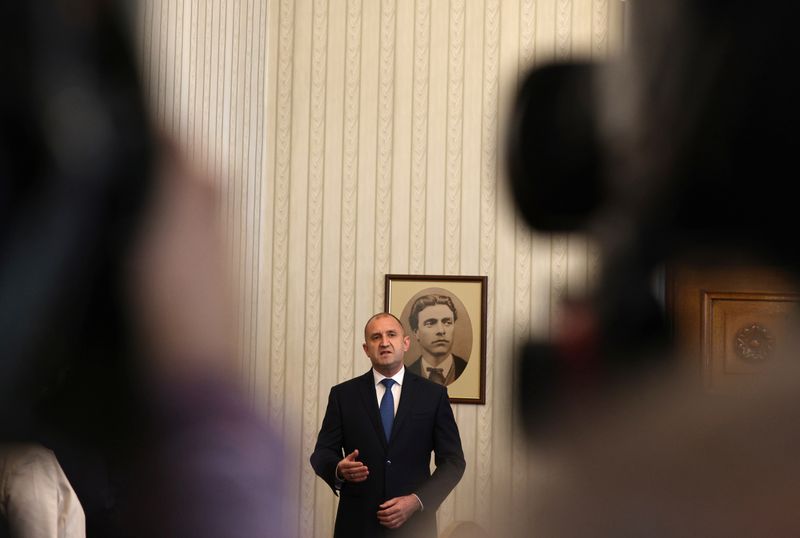By Tsvetelia Tsolova
SOFIA (Reuters) -Bulgaria's president said on Wednesday he will call a snap parliamentary election for July and name a technocrat interim Cabinet next week, after politicians failed in a third attempt to form a government a month after an inconclusive vote.
Prime Minister Boyko Borissov failed to form a new coalition after widespread anger at corruption in Europe's poorest country hit support for his centre-right GERB party in the April 4 election, though it remained the biggest group in parliament.
After Borissov failed, so did attempts by a new anti-elite party led by TV host Slavi Trifonov, and by the third largest party, the Socialists, who abandoned their effort on Wednesday.
"Bulgaria needs a strong-willed political alternative, which the current parliament failed to produce," Radev said in a live broadcast. "Next week I will dissolve the parliament and appoint an interim government. In this situation, the election is expected to be held on July 11."
Radev said he planned to appoint experts to the caretaker Cabinet, but did not reveal his choice to be prime minister. Sources familiar with the situation told Reuters discussions were still ongoing, with two main candidates for interim premier being considered, neither of whom the sources would identify.
The Cabinet is expected to include members of the Socialist Party, which has already said it would back Radev in his own re-election bid in a presidential vote due in the autumn.
Two sources familiar with the situation said Denitsa Zlateva, a Socialist who served as a deputy premier in charge of Bulgaria's preparations for the country's 2018 EU presidency, was being considered for the post of foreign minister as Radev seeks to affirm Bulgaria's commitment to Brussels.
Prolonged political uncertainty is unlikely to undermine Bulgaria's prudent fiscal policies and its commitment to adopting the euro currency, due to a broad political consensus in Sofia on these issues, ratings agency Fitch said on Tuesday.
Fitch, which rates Bulgaria at investment BBB grade with a positive outlook, said that a protracted political deadlock could delay reforms needed for the efficient tapping of the EU's 750 billion euro coronavirus Recovery Fund.

The caretaker government will face a challenging agenda of managing a health and economic crisis triggered by the coronavirus pandemic within a tight budget it cannot amend, and of ensuring a fair election.
A recent opinion poll showed GERB remains the most popular party, but its key rival, Trifonov's There Is Such a People, is a close second, raising the prospect of continued fragmentation in which politicians will struggle to form a stable coalition.